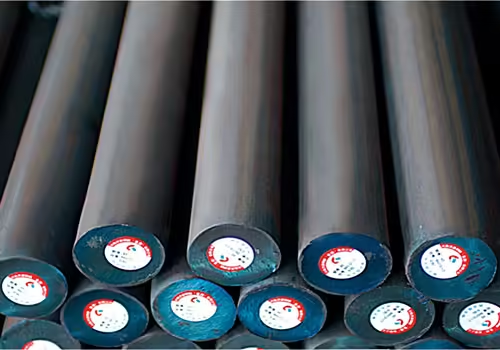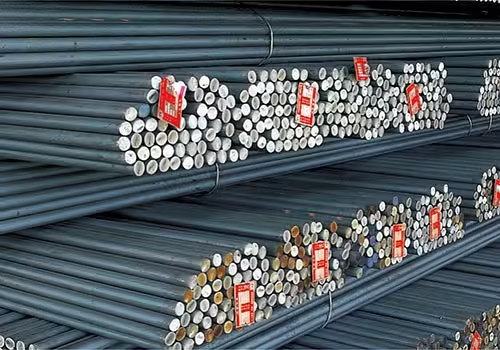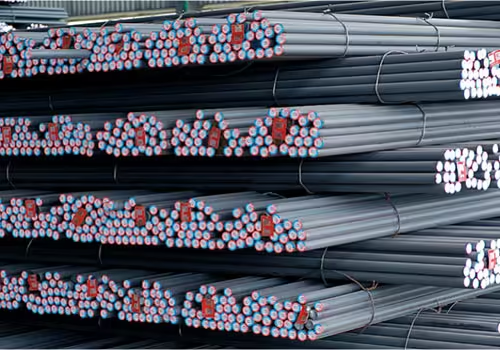
Top 6 4140 Metal Properties Explained
Table of Contents
Introduction

When it comes to high-strength alloy steels, few materials are as widely used or as reliable as 4140 metal. Known for its excellent balance of toughness, strength, and hardenability, 4140 metal has become a staple in various industries including automotive, aerospace, oil and gas, and general machinery. It is a chromium-molybdenum alloy steel that offers remarkable versatility across both hot and cold working conditions.
The growing popularity of 4140 metal can be attributed to its performance in applications that demand high fatigue strength and resistance to wear and impact. Whether it’s used for crankshafts, gears, or structural tubing, the properties of 4140 metal ensure it meets stringent industrial requirements.
This article explores the top six 4140 metal properties, showcasing how they make this alloy steel a powerful option for engineers and designers alike. We’ll also provide a practical comparison table and answer common questions to help you better understand its full range of capabilities.
1. Excellent Tensile Strength and Toughness
One of the most important properties of 4140 metal is its high tensile strength. This characteristic makes it especially suitable for parts that experience significant mechanical stress. The metal maintains its toughness even under dynamic loads and at relatively high temperatures, making it reliable in harsh working environments.
Tensile strength values typically range between 655 MPa to 1080 MPa, depending on the heat treatment process applied. This property allows 4140 metal to serve in demanding roles such as axles, bolts, and heavy-duty shafts where both durability and strength are essential.
In addition to static loads, the alloy resists crack propagation and failure under repeated loading, which is vital in engineering environments that experience both high pressure and vibration. This performance under duress is one of the key factors driving its use in heavy machinery and high-stress assemblies.
2. Good Wear Resistance and Fatigue Strength
In applications where components are subjected to repeated loading and friction, the wear resistance of the material becomes a crucial factor. 4140 metal is known for its impressive fatigue resistance, especially when treated with surface-hardening techniques like nitriding or induction hardening.
This quality significantly extends the lifespan of parts made from 4140 metal, making it a cost-effective choice for long-term operations. Its wear resistance is particularly beneficial in manufacturing tools, dies, and rotating machine elements that operate under continuous motion.
The metal’s fatigue strength also ensures fewer replacement cycles, reducing downtime and maintenance costs. It is widely used in sectors like railways, oil drilling, and automotive transmissions where long-term integrity under motion and stress is essential.
3. Superior Machinability After Heat Treatment

Although 4140 metal is a high-strength alloy, it offers excellent machinability after proper heat treatment. In its annealed state, it can be easily cut, drilled, and milled using conventional machining tools. Once quenched and tempered, the metal retains its strength while still allowing for precision shaping and finishing.
This machinability makes 4140 metal a preferred choice for industries that need to fabricate complex shapes without compromising on mechanical performance. It is also compatible with a range of welding and threading processes, further adding to its versatility.
For manufacturers, this reduces production time and tooling wear, while improving accuracy and surface finish. Whether producing custom fasteners or multi-step gear components, the alloy delivers on both structural performance and production efficiency.
4. Versatile Heat Treatment Response
4140 metal is highly responsive to a variety of heat treatment processes, which makes it extremely adaptable to different industrial needs. These treatments can be used to alter its mechanical properties, such as hardness, ductility, and toughness.
Here is a comparison table showing how different heat treatments affect 4140 metal properties:
| Heat Treatment Method | Tensile Strength (MPa) | Yield Strength (MPa) | Hardness (HRC) | Applications |
|---|---|---|---|---|
| Annealed | 655 | 415 | 20-25 | General machining, forming |
| Quenched & Tempered | 850 – 1080 | 655 – 900 | 28-36 | Gears, shafts, heavy-duty components |
| Nitrided | 900 – 1050 | 700 – 850 | 50-65 (surface) | Tools, dies, wear-resistant parts |
| Normalized | 850 | 600 | 22-30 | Structural components, forgings |
These variations show the flexibility of 4140 metal, enabling it to meet diverse mechanical requirements depending on the specific treatment process used.
5. High Impact Resistance in Tough Conditions

One of the most remarkable properties of 4140 metal is its exceptional ability to resist impact forces, which is critical in many demanding industrial environments. Impact resistance refers to the material’s capability to absorb and dissipate sudden shocks or heavy loads without cracking or fracturing. This characteristic is especially important in applications such as drilling equipment, automotive suspension parts, agricultural machinery, and high-speed rotating components where unexpected forces can occur frequently.
4140 metal’s impact resistance remains reliable even under low temperature conditions, where many other metals tend to become brittle and prone to failure. This makes it highly suitable for use in cold climates or refrigerated environments. The metal’s toughness ensures that it can endure rapid, high-energy impacts without compromising structural integrity, enhancing safety for both operators and equipment.
In addition, the alloy’s resistance to brittle fracture reduces downtime caused by mechanical failure, lowering maintenance costs and extending the operational lifespan of critical parts. Its ability to absorb shock without deformation or cracking makes 4140 metal a preferred choice in sectors such as defense, mining, and heavy construction, where the consequences of material failure are severe.
The superior impact resistance also contributes to the alloy’s versatility, allowing it to perform reliably across a range of dynamic loading conditions. This property complements its tensile strength and fatigue resistance, ensuring 4140 metal delivers consistent performance even in the most challenging situations.
6. Corrosion Resistance with Proper Coating
While 4140 metal does not naturally exhibit the corrosion resistance seen in stainless steel or other specialty alloys, it can be effectively protected through surface treatments and coatings to significantly improve its durability in harsh environments. Without such protective layers, the alloy is susceptible to rust and oxidation when exposed to moisture, chemicals, or saltwater.
Common protective measures include black oxide coating, zinc plating, phosphate coating, and painting. Each of these treatments creates a barrier that shields the base metal from corrosive agents and helps maintain the metal’s mechanical properties over time.
For example, black oxide treatment forms a thin, adherent oxide layer that enhances resistance to mild corrosion while also reducing light reflection and improving appearance. Zinc plating offers sacrificial protection by corroding preferentially to the underlying metal, making it ideal for outdoor and marine applications. Phosphate coatings improve paint adhesion and provide some corrosion resistance, commonly used in automotive and machinery parts.
In environments with moderate to high humidity or exposure to saltwater, such as coastal or offshore locations, applying these coatings is crucial to prevent premature metal degradation. Proper surface treatment extends the service life of 4140 metal components, maintaining their strength and reliability even after prolonged exposure to corrosive elements.
Moreover, regular maintenance and inspections combined with these coatings can prevent surface wear and corrosion from spreading deeper into the metal structure. This makes 4140 metal with appropriate protective coatings a viable and cost-effective material option for a wide variety of outdoor, marine, and industrial applications where corrosion resistance is important but complete stainless steel protection is not required.
Conclusion
The broad set of mechanical properties offered by 4140 metal explains why it remains one of the most widely used alloy steels in industrial sectors. From tensile strength to impact resistance, this alloy combines performance and flexibility in a way few materials can.
Thanks to its adaptability to heat treatment and its compatibility with machining and coating processes, 4140 metal offers outstanding value for manufacturers seeking reliability and durability.
If you’re working in environments where structural integrity, load-bearing capacity, and long-term performance are essential, 4140 metal should be on your materials shortlist.
FAQ
What is 4140 metal commonly used for?
4140 metal is widely recognized for its excellent combination of strength, toughness, and versatility, making it a popular choice across many industrial applications. It is extensively used in manufacturing automotive parts such as crankshafts, gears, and axles where durability and resistance to mechanical stress are critical. In the machinery sector, 4140 metal is often selected for components like shafts, bolts, and couplings that require long service life under heavy loads.
Additionally, the alloy’s toughness and fatigue resistance make it ideal for high-impact applications such as drilling equipment and heavy-duty construction tools. It is also used in aerospace and defense industries for parts that must withstand extreme operating conditions without failure. The alloy’s adaptability to various heat treatments allows it to meet diverse performance requirements, which is why it remains a go-to material for engineers designing structural and load-bearing components.
Can 4140 metal be welded easily?
Welding 4140 metal requires careful preparation and technique due to its alloy composition and hardenability. Although it can be welded, the process demands preheating the metal before welding to reduce thermal gradients and minimize the risk of cracking. Preheating typically involves raising the temperature of the metal to around 150–200°C (300–400°F) depending on the thickness and specific application.
After welding, post-weld heat treatment or stress-relief annealing is recommended to restore ductility and reduce residual stresses that could cause brittleness or cracking. The use of appropriate filler materials matched to the base metal composition is also crucial to ensure a strong, durable weld.
If these precautions are not taken, the weld zone may become prone to hardness and cracking, undermining the structural integrity of the part. Therefore, welding 4140 metal is best performed by skilled welders who understand its metallurgical behavior and follow strict procedural guidelines.
Is 4140 metal corrosion-resistant?
4140 metal does not inherently possess high corrosion resistance compared to stainless steels or other specialized alloys. Its chemical composition makes it susceptible to rust and oxidation when exposed to moisture, salts, or acidic environments. However, its corrosion resistance can be significantly enhanced through surface treatments and protective coatings.
Common protective options include black oxide coating, zinc plating, phosphate coatings, and painting, all of which create barriers that protect the metal from environmental degradation. For outdoor applications or those involving exposure to water and chemicals, these coatings are essential to extend the metal’s service life.
Additionally, routine maintenance such as cleaning and timely reapplication of protective layers can help prevent corrosion from compromising the structural integrity of 4140 metal components. When corrosion resistance is a primary concern, combining 4140 metal with proper coatings offers a practical and cost-effective solution.
How does 4140 metal compare to stainless steel?
4140 metal and stainless steel serve different purposes based on their mechanical and chemical properties. While 4140 metal is valued for its superior tensile strength, toughness, and wear resistance, it falls short in corrosion resistance compared to stainless steel. Stainless steel alloys, especially grades like 304 and 316, contain higher chromium and nickel content that form a passive oxide layer, protecting them from rust and chemical attack.
4140 metal’s higher hardness and ability to withstand heavy mechanical loads make it preferable for structural components, gears, shafts, and other load-bearing parts where corrosion resistance is secondary. In contrast, stainless steel is often chosen for applications requiring long-term exposure to moisture, chemicals, or sanitary environments.
Ultimately, the choice depends on the specific application requirements: 4140 metal excels in strength-critical uses, whereas stainless steel is better suited for environments demanding superior corrosion resistance and aesthetics.
Can I machine 4140 metal in its hardened state?
Machining 4140 metal in its hardened state is possible but more challenging compared to machining it in the annealed (softened) condition. When annealed, 4140 metal offers good machinability and can be shaped efficiently using conventional cutting tools and speeds. This makes it easier to achieve tight tolerances and smooth surface finishes.
However, once hardened by heat treatment, the alloy becomes significantly tougher and more abrasive, which can cause increased tool wear and require slower cutting speeds, specialized tooling materials such as carbide or ceramic, and advanced cooling techniques to prevent overheating.
Many manufacturers prefer to perform rough machining while the metal is annealed, followed by heat treatment, and then final finishing passes to optimize production efficiency and tool life. That said, with the right equipment and expertise, hardened 4140 metal can be machined to high precision, particularly for parts where maintaining maximum strength is critical.






